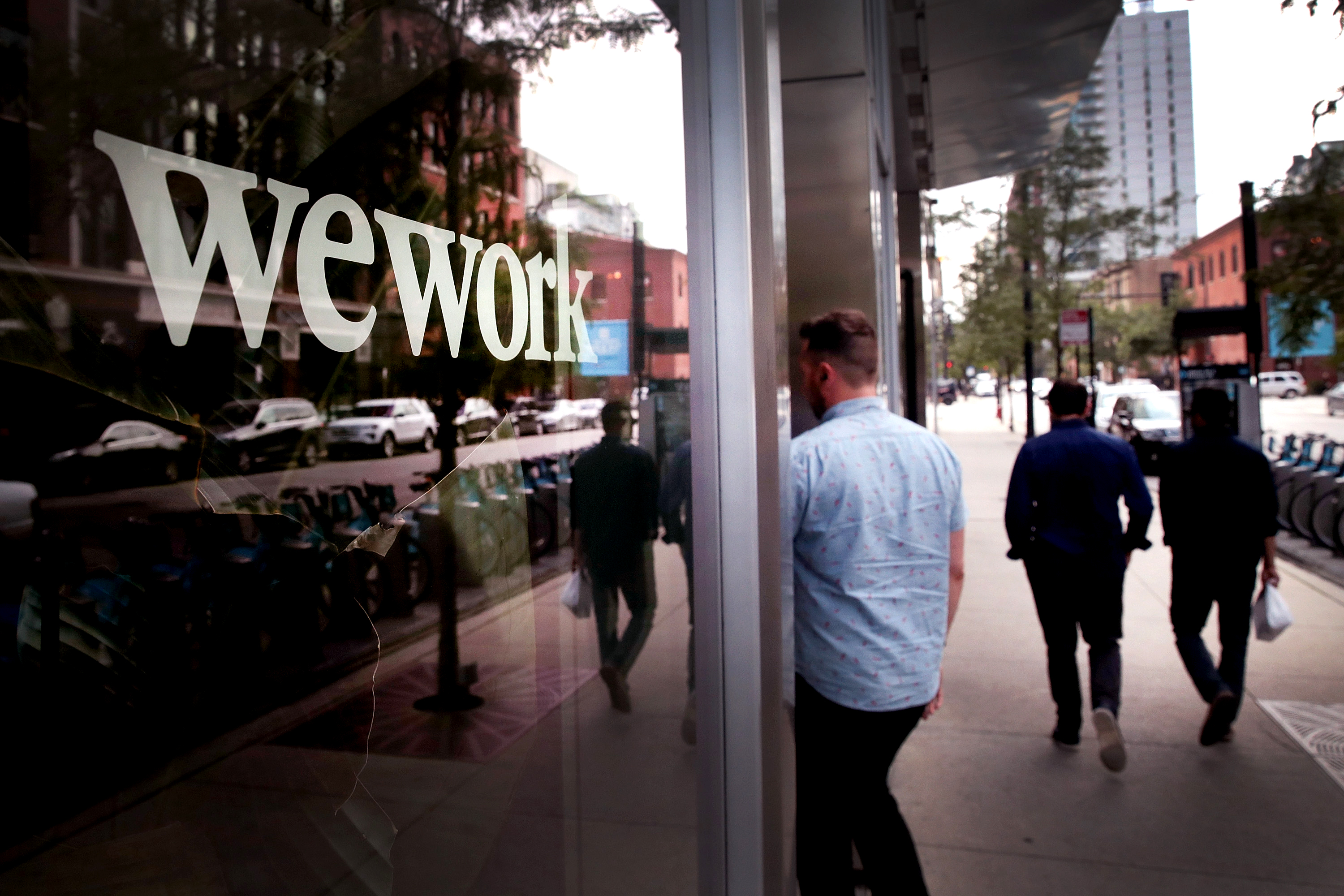Why are tech IPOs tanking?
Investors seem to be wising up to flashy-but-flawed tech startups

A free daily email with the biggest news stories of the day – and the best features from TheWeek.com
You are now subscribed
Your newsletter sign-up was successful
The smartest insight and analysis, from all perspectives, rounded up from around the web:
The public markets have turned a cold shoulder toward flashy-but-flawed tech startups, said Eric Savitz at Barron's. The fizzling of what was supposed to be a banner year for initial public offerings started with Uber and Lyft, whose stock prices have fallen 29 and 41 percent, respectively, since their IPOs this spring. Now there's the colossal flop of office rental company WeWork, which pushed out its chief executive, Adam Neumann, and this week withdrew its IPO plans amid harsh investor skepticism. The public smackdowns of Peloton, an exercise bike company, and SmileDirectClub — once hyped as "the Warby Parker of braces" — upon their stock market debuts are further signs "that a correction has set in." The chilly trend spooked Endeavor, the Hollywood entertainment company, which pulled its planned offering last week, and it's an ominous sign for Airbnb, which aims to go public in 2020. Discerning public investors are finding that "not every company with an inspirational story is standing up to scrutiny," said David Gelles at The New York Times. Neumann sold private investors on the idea that the unprofitable WeWork could "elevate the world's consciousness." Peloton similarly bills itself as "an innovation company transforming the lives of people around the world," hoping that investors might "focus more on that mission statement, and less on the fact that it lost $196 million in the last full year." They haven't. While some companies that trumpeted their grand vision were embraced by the market — Google, Facebook — "they were also wildly profitable."
Going public means companies have to report financial figures based on standard accounting rules, said Jean Eaglesham at The Wall Street Journal, instead of optimistic measures or outright lies. Back in 2010, one magazine reported that "just one month after launch, WeWork turned its first profit and has never stopped." Not true. Peloton's CEO, for instance, said in May 2018 that the company was profitable. The reality? Peloton "has been running at a loss since its 2012 formation" and expects the losses to keep coming for the foreseeable future. Equity investors, who are once more focusing on profitability ahead of growth, have grown wise to accounting tricks and are looking at "balance sheets and profits," said Dion Rabouin at Axios. "As the U.S.-China trade war has intensified, triggering depressed economic data and heightened recession fears globally, investors have gotten more selective about what stocks they want to buy."
The Week
Escape your echo chamber. Get the facts behind the news, plus analysis from multiple perspectives.

Sign up for The Week's Free Newsletters
From our morning news briefing to a weekly Good News Newsletter, get the best of The Week delivered directly to your inbox.
From our morning news briefing to a weekly Good News Newsletter, get the best of The Week delivered directly to your inbox.
Not every IPO this year has tanked, said Shira Ovide in Bloomberg. Less-buzzy software companies that sell to other businesses — think Zoom video conferencing and Slack office messaging — have actually fared pretty well. "It may be that the consumer-oriented tech companies with lots of attention as startups may be great companies but not necessarily great investments if the hype leads to overvaluation." The discipline of the public markets should be welcomed, said the Financial Times in an editorial. It's a sign "the IPO market is growing up." In the recent past, steep losses "were a sign of ambition, scale, and speed of growth." But greater scrutiny "exposed the weaknesses in the companies' business models and, in the case of WeWork, the dangers of buying into the cult of a supercharged founder."
A free daily email with the biggest news stories of the day – and the best features from TheWeek.com
-
 How the FCC’s ‘equal time’ rule works
How the FCC’s ‘equal time’ rule worksIn the Spotlight The law is at the heart of the Colbert-CBS conflict
-
 What is the endgame in the DHS shutdown?
What is the endgame in the DHS shutdown?Today’s Big Question Democrats want to rein in ICE’s immigration crackdown
-
 ‘Poor time management isn’t just an inconvenience’
‘Poor time management isn’t just an inconvenience’Instant Opinion Opinion, comment and editorials of the day
-
 The pros and cons of noncompete agreements
The pros and cons of noncompete agreementsThe Explainer The FTC wants to ban companies from binding their employees with noncompete agreements. Who would this benefit, and who would it hurt?
-
 What experts are saying about the economy's surprise contraction
What experts are saying about the economy's surprise contractionThe Explainer The sharpest opinions on the debate from around the web
-
 The death of cities was greatly exaggerated
The death of cities was greatly exaggeratedThe Explainer Why the pandemic predictions about urban flight were wrong
-
 The housing crisis is here
The housing crisis is hereThe Explainer As the pandemic takes its toll, renters face eviction even as buyers are bidding higher
-
 How to be an ally to marginalized coworkers
How to be an ally to marginalized coworkersThe Explainer Show up for your colleagues by showing that you see them and their struggles
-
 What the stock market knows
What the stock market knowsThe Explainer Publicly traded companies are going to wallop small businesses
-
 Can the government save small businesses?
Can the government save small businesses?The Explainer Many are fighting for a fair share of the coronavirus rescue package
-
 How the oil crash could turn into a much bigger economic shock
How the oil crash could turn into a much bigger economic shockThe Explainer This could be a huge problem for the entire economy